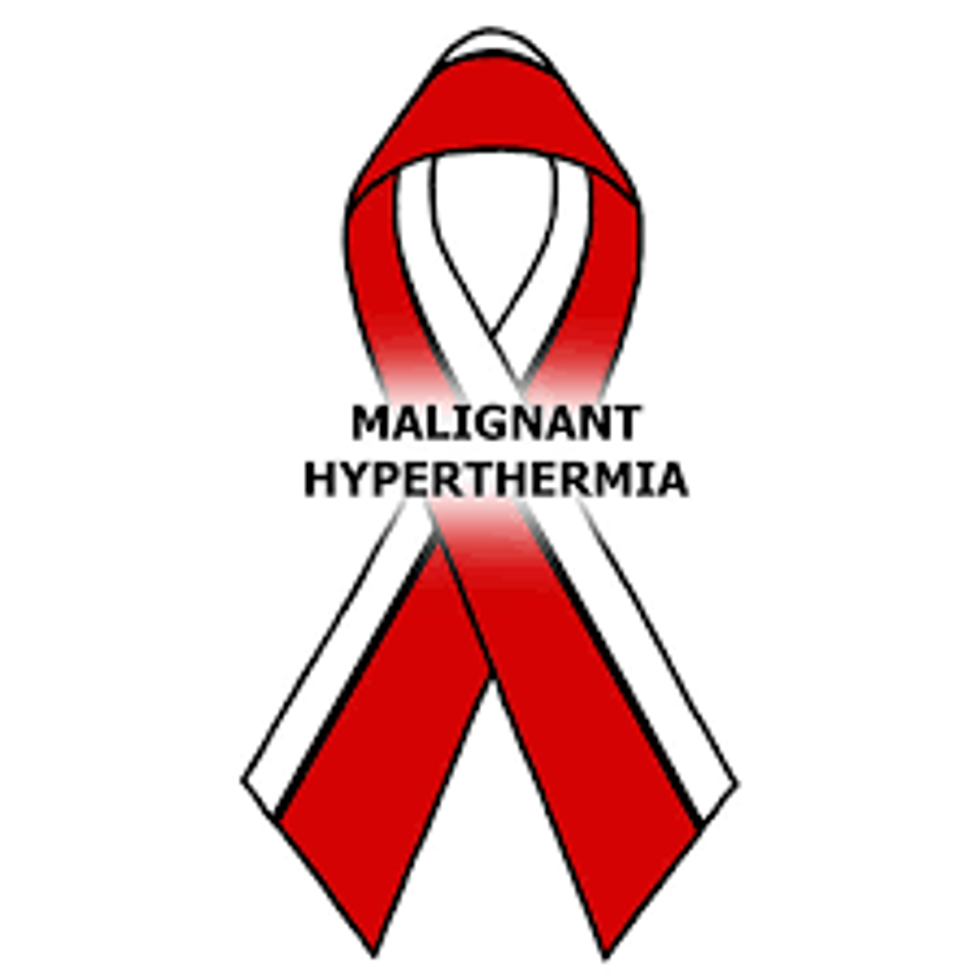"I have Malignant Hyperthermia"
"Oh, so you get cold a lot?"
No. Actually, Malignant Hyperthermia actually has nothing to do with being too cold or warm at all. What is it then, you ask? Malignant Hyperthermia (MH) is a potentially fatal, inherited disorder usually associated with the administration of certain general anesthetics or the drug succinylcholine. The easy way to describe it is a severe reaction to anesthesia.
This happens because of an accelerated rate of metabolism of muscles. Usually, someone who has an attack due to Malignant Hyperthermia (an MH crisis) does so during a surgery. The signs include a sudden increase in body temperature (sometimes as high as 110 degrees Fahrenheit), increase heart rate, cardiac arrest, muscle rigidity, muscle breakdown, and increased acid content. If treated immediately with certain drugs, the affects can be reversed. Usually, this is caught early enough to save the persons life; but not always. Sometimes, the person is left with brain damage, kidney failure, muscle damage, or impaired organ function. There is now evidence that MH crisis can strike during other circumstances such as exercise, drugs, or exposure to hot environments. In cases like these, mortality is high because they are in an uncontrolled environment without access to live saving drugs.
Let me clarify that many people with MH have never actually had an MH crisis. It is a dominantly inherited trait, however. This means that if even one parent has it; the child will probably have it. Two types of tests exist to determine the presence of the genetic defect. These tests are sometimes expensive, extensive, and impractical, but can prove very useful for some individuals. Sometimes, people with a family history do not even go through the testing process, as they are always treated as if they have it. Plus, not everyone with the gene defect will have a reaction when exposed to anesthetics. Most hospitals and anesthesiologists have a list of family names in the area which carry the gene on record. This means that anyone undergoing a surgery when they have a family history of MH should be safe, right?
So why is this disorder so scary? The scary part comes when the doctors don't know you have it. In a situation where you are brought in to the hospital unidentified, the presence of MH goes unknown. If the patient is taken in for an emergency surgery, they would be given general anesthesia. This would be life threatening for anyone with MH. Even if the patient is identified, if they are in an area which is unfamiliar with MH, they may be given general anesthesia anyway. I've been in situations where upon telling the nurses and doctors about my MH, I am asked what it is. If I had to undergo an emergency surgery in this situation, my life may be in danger.
People with Malignant Hyperthermia or a family history of MH are usually urged to wear a medical alert bracelet or carry a drug alert card. They should also inform any medical professional they encounter during a hospital visit of their situation. Health care providers must always be aware of this disorder. This does not mean that people with MH cannot undergo surgery. There are alternate forms of anesthesia to be used for people with MH. There are more safe options than unsafe options, however the unsafe options are more common for the general public.
This disorder is scary, because you never know when something could go wrong. Even if you think you don't have MH, tests can give false negatives. An operation to save your life could end up killing you. Spreading awareness of this disorder proves difficult, as it is so confined to small areas of the country. I feel that all medical professionals should be aware of this disorder and the fatal or life altering side effects of a reaction. Together, we can spread the word and ensure our safety the day we meet that operating table.






















